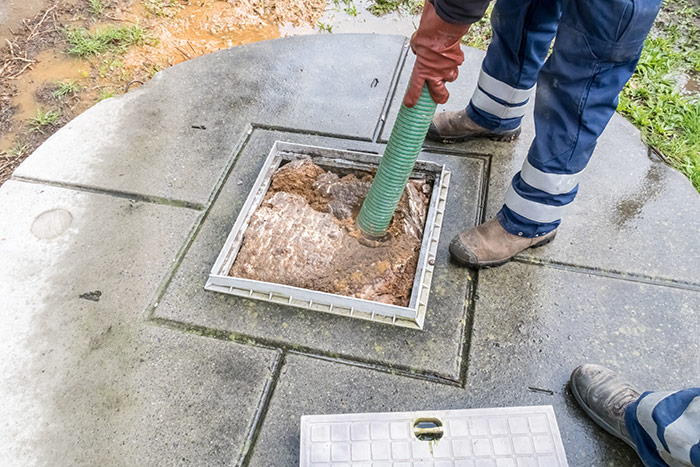
- Water and sewage from toilets, drains, and sinks are backing up into the home.
- Bathtubs, showers, and sinks drain very slowly.
- Gurgling sounds in the plumbing system.
- Standing water or damp spots near the septic tank or drainfield.
- Bad odors around the septic tank or drainfield.
- Bright green, spongy lush grass over the septic tank or drainfield, even during dry weather.
- Algal blooms in nearby ponds or lakes.
- High levels of nitrates or coliform bacteria in water wells.
Like most components of your home, septic systems require routine maintenance. If maintained, the septic system should provide reliable service for many years. If the septic system isn't maintained, owners run the risk of dangerous and costly failures. And, septic systems do have an operational lifetime and will eventually need to be replaced.
A failed or malfunctioning septic system is a risk to human and animal health and can pollute the environment. A responsible septic owner is alert to the signs of failure, regardless of the age of the system, and responds quickly when any are discovered. A quick response may save the owner money in repairs and may prevent illness and negative impact on the environment.
What happens when a septic system fails?
A septic system failure causes untreated sewage to be released and transported to where it shouldn't be. This may cause sewage to come to the surface of the ground around the tank or the drainfield or to back up in pipes in the building. The sewage could also find its way into groundwater, surface water, or marine water without us ever seeing it. The sewage carries pathogens and other dangerous contaminants. Exposure to these pathogens and contaminants can make people and animals sick. They can also contaminate water sources and make them unsafe for drinking, swimming, shellfish harvesting, and agricultural uses.
For more information, contact Morse Engineering and Construction.
Source: doh.wa.gov
